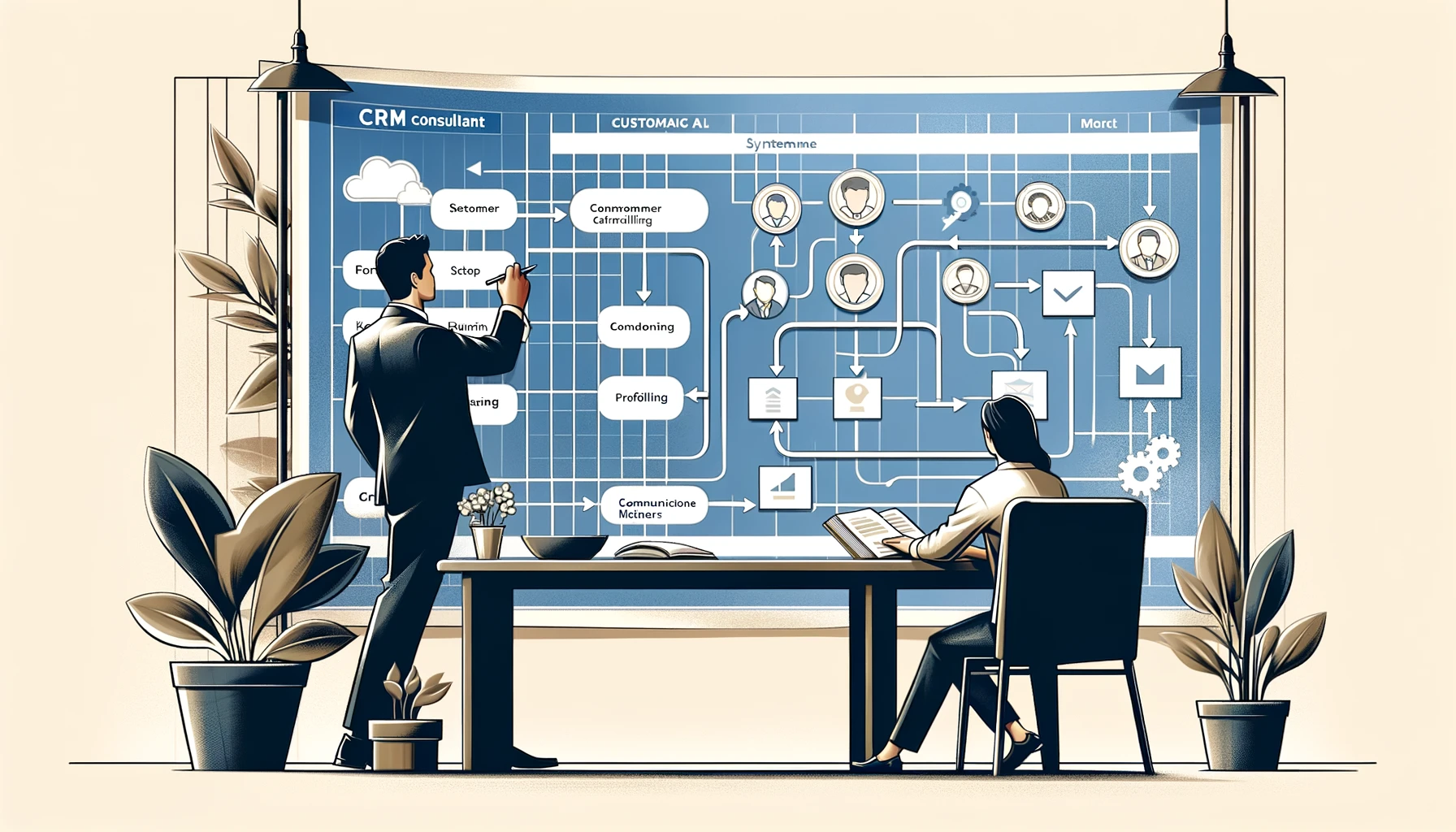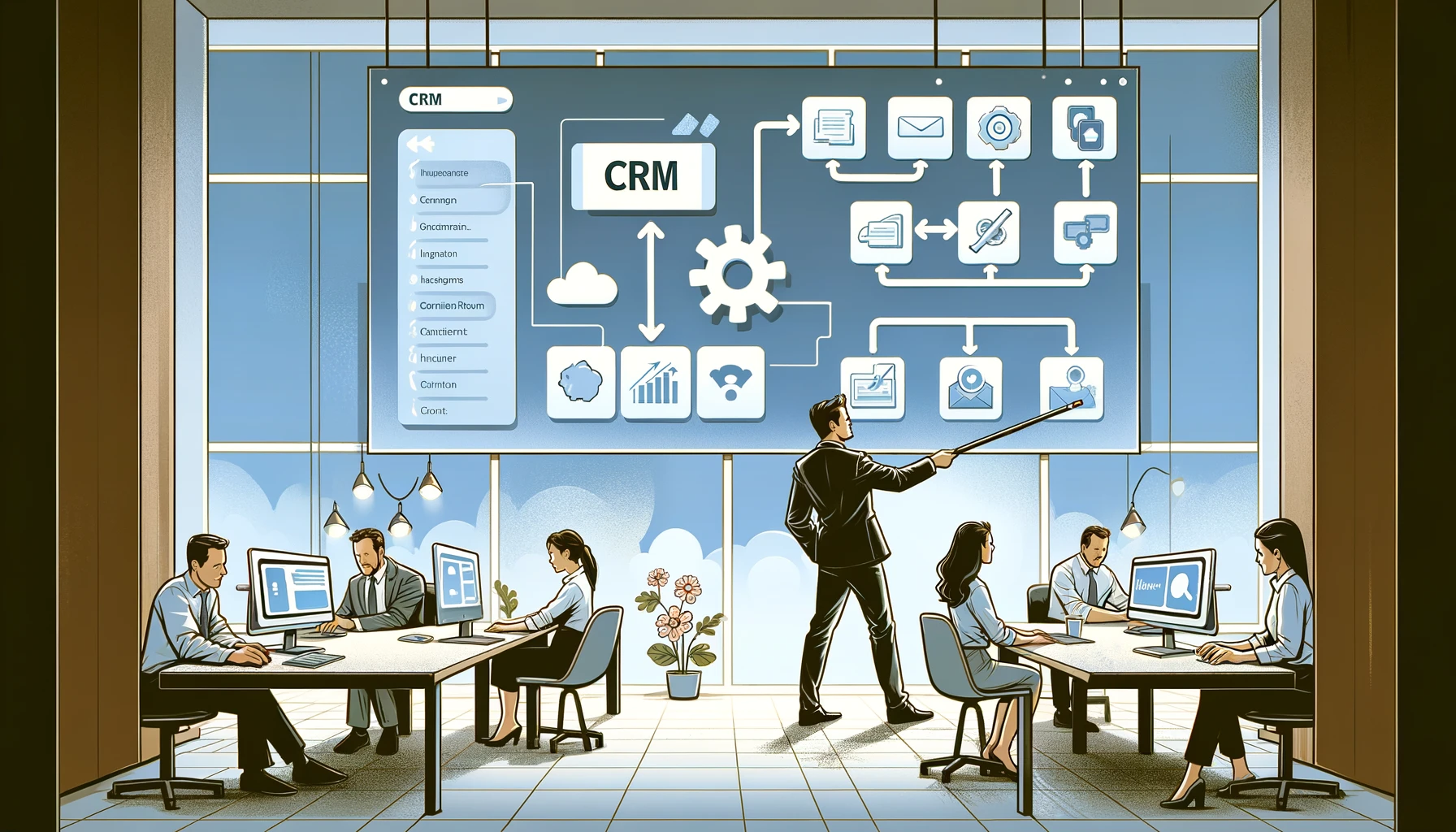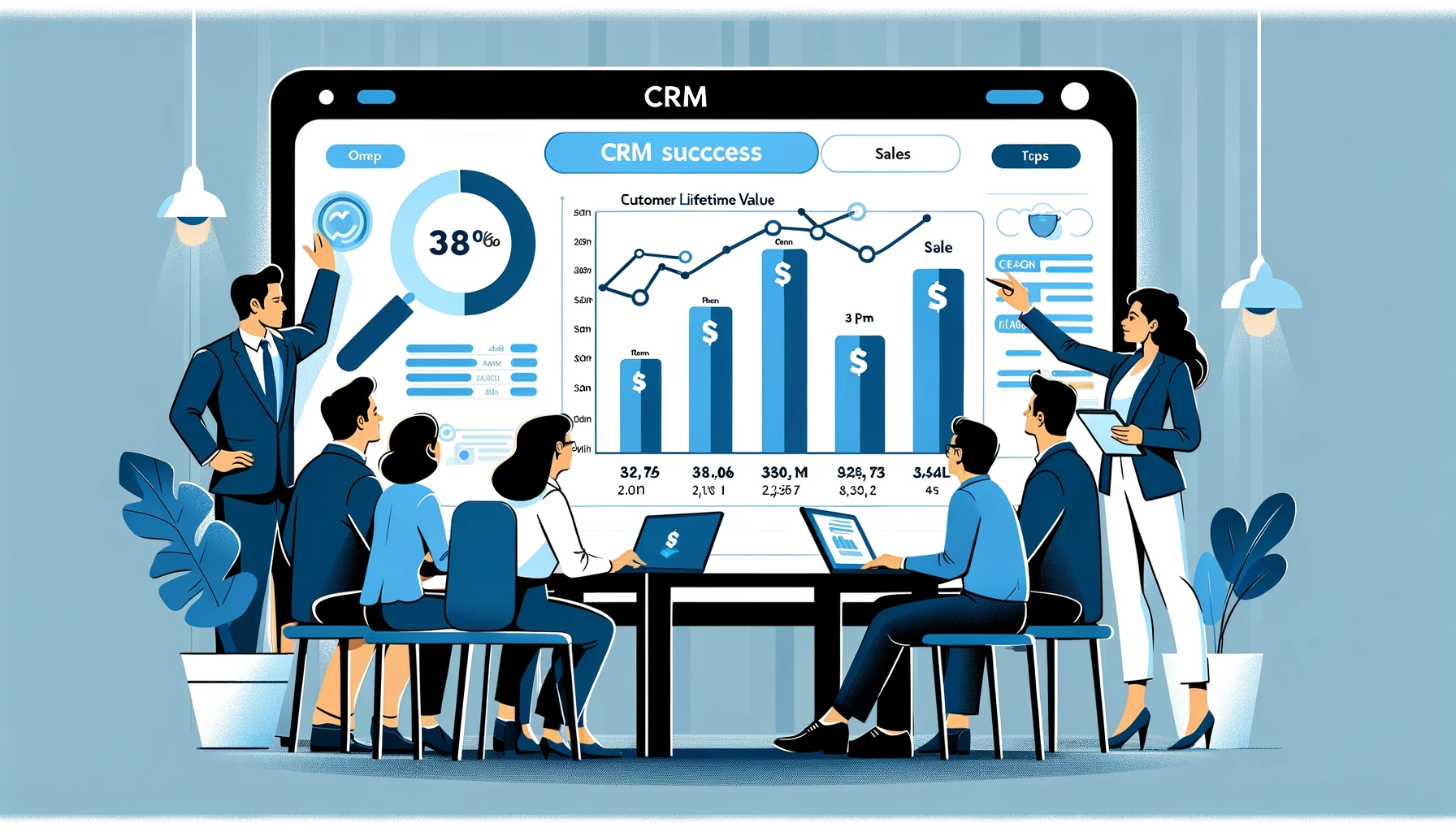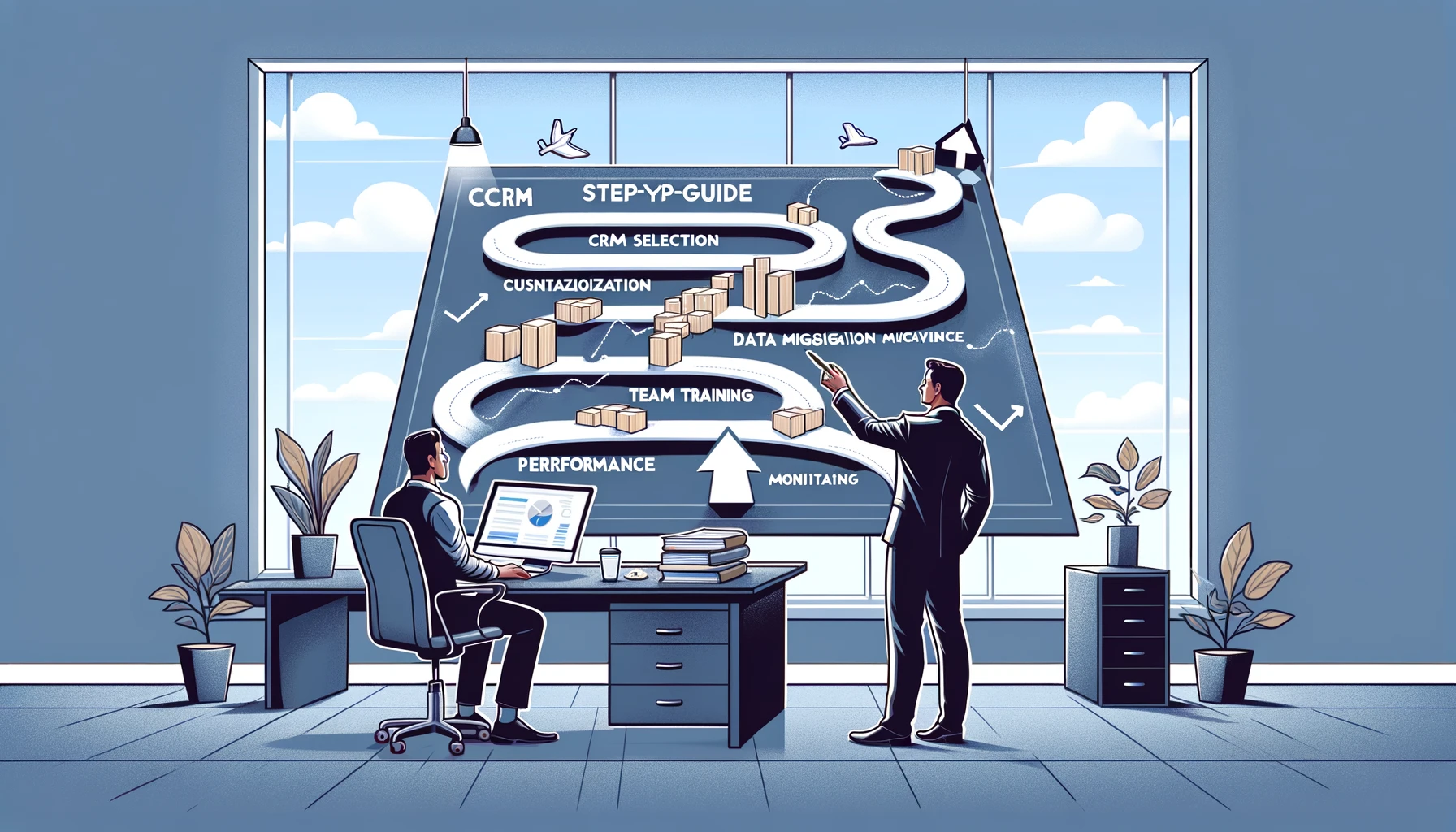CRM Consulting 2024: Essential Relationship Elevations
Discover expert CRM consulting strategies to enhance customer engagement and drive business growth. Get top CRM insights and tips.
Part 1. CRM Consulting 2024: Essential Relationship Elevations
Part 2. CRM Consulting Essentials for Business Growth
Part 3. CRM Consultant Essentials: Elevate Your Business
Part 4. CRM Consulting Services: Enhance Your Customer Relations
Part 5. CRM Consultancy Essentials for Maximizing ROI
Part 6. CRM for Consultants: Elevate Your Client Management
Part 7. Consulting CRM Essentials: Maximize Client Relations
Part 8. CRM Implementation Consultant: Elevate Your Business
Maximizing Your CRM Potential with Expert Guidance
Choosing the right CRM for your business isn’t just about software selection; it’s about transforming your customer relationship approach. A skilled CRM consultant can be the catalyst to unlock your CRM’s full potential, guiding you through a maze of options to tailor a system that aligns with your business goals.
Imagine a CRM that not only manages contacts but also offers deep insights into customer behavior and preferences. With expert guidance, you can leverage features that enhance customer engagement, streamline workflows, and drive sales growth. Whether you run a consulting business, an education consultancy, or an immigration service, the best CRM for your niche exists, and a consultant ensures you find and utilize it effectively.
By working with a CRM expert, you’ll gain:
- A customized CRM strategy that reflects your unique business needs
- An optimized system for maximum efficiency and user adoption
- Training and support to empower your team for success
Remember, the best CRM for consulting business, education consultancy, or immigration consultants is one that fits like a glove – snug, comfortable, and just right for the task at hand.
Here’s a quick checklist to keep in mind:
- Define your business requirements
- Evaluate CRM features against your needs
- Ensure scalability for future growth
- Assess ease of use and support
With the right consultant, your CRM will become the powerhouse of your customer strategy, driving loyalty and revenue like never before.

The Role of CRM Consulting in Business Growth
In today’s competitive landscape, a CRM consultant is not just a luxury; it’s a necessity for businesses aiming to thrive. These specialists bridge the gap between technology and strategy, ensuring that your CRM system isn’t just a database, but a dynamic tool for business growth.
A CRM consultant brings a wealth of benefits, including:
- Streamlined sales processes
- Enhanced customer data analysis
- Personalized marketing strategies
They transform raw data into actionable insights, fostering informed decision-making that propels your company forward. With their expertise, businesses can enjoy increased efficiency and customer retention rates, while also boosting new customer acquisition.
To illustrate the impact of a CRM consultant, consider this comparison:
| Metric | Before Consultant | After Consultant | Improvement |
|---|---|---|---|
| Lead Conversion Rate (%) | 13 |
21 |
+61.5% |
| Customer Retention (%) | 75 |
85 |
+13.3% |
| Sales Growth (%) | 8 |
15 |
+87.5% |
By partnering with a CRM consultant, you are not just investing in software but in a tailored strategy that aligns with your goals. They are the key to unlocking the full power of your CRM, driving your business growth to new heights.

Crafting a Tailored CRM Strategy for Success
Embarking on the journey of CRM customization can feel daunting, but with a CRM consultant, it’s like having a GPS for your business strategy. These experts don’t just give you the tools; they craft a roadmap that speaks directly to your company’s ethos and goals.
Your tailored CRM strategy will include:
- Precise targeting of your ideal customer profiles
- Streamlined communication channels for peak engagement
- Metrics that matter, fine-tuned to your business objectives
Let’s break down the essentials of a bespoke CRM strategy:
- Identifying key customer touchpoints
- Integrating with existing business processes
- Setting up clear, measurable goals for success
By focusing on these elements, your CRM becomes more than a system—it becomes a central part of your business’s growth narrative, ensuring every customer interaction is an opportunity to impress and retain.
Enhance your business’s precision and agility with a CRM strategy that’s not just built, but sculpted for your success. Your consultant is your guide, your strategist, and your partner in carving out a competitive edge in your market.

With a CRM consultant, you’re setting the stage for a future where customer relationships are not just managed but nurtured into lasting partnerships. The result? A thriving business with a robust bottom line.
Navigating CRM Integration: A Consultant’s Approach
Integrating a CRM system within your existing business framework is a critical step, and it’s where a CRM consultant truly shines. They ensure a seamless fusion of your CRM with the tools and workflows you already use, making the transition smooth and the adoption rate high.
A consultant’s approach to CRM integration involves:
- Mapping out your current business processes
- Identifying potential points of friction
- Recommending solutions for a unified system
Their goal is to create an ecosystem where data flows freely between your CRM and other platforms, such as email marketing tools or customer service software. This holistic approach not only saves time but also enhances data accuracy and provides a complete view of the customer journey.
Consider these key steps for a successful integration:
- Evaluate your tech stack compatibility
- Plan for data migration and integrity
- Train your team for a smooth transition
With a consultant’s expertise, you can navigate the complexities of integration confidently, setting your business up for improved efficiency and a clearer path to growth.

Embark on your integration journey with a CRM assistant to harness the full power of your business tools, ensuring you stay ahead in the game of customer relations.
Measuring the Impact: CRM Success Metrics
Measuring success in any business initiative is crucial, and when it comes to implementing a CRM system, keeping track of performance metrics is vital. A CRM consultant excels in defining and monitoring these success metrics, ensuring that the CRM not only fits your business like a glove but also delivers tangible results.
Here are the key metrics to consider:
- Customer Lifetime Value (CLV): Assessing the profit your business makes from any given customer.
- Sales Revenue: Tracking the direct impact on sales post-CRM implementation.
A CRM consultant helps you understand these numbers, providing a clear picture of your CRM’s ROI. For instance, if your CLV increases, it’s a sign that customer relationships are strengthening.
| Success Metric | Impact |
|---|---|
| CLV Increase (%) | +20% |
| Sales Revenue Growth (%) | +30% |
By keeping an eye on these metrics, you can fine-tune your strategies for even better outcomes.

With a consultant’s expertise, you’re empowered to make data-driven decisions, leading to a more profitable, customer-centric business model.
Launching Your CRM Journey: A Step-by-Step Guide
Embarking on a CRM journey can revolutionize how you connect with customers and manage relationships. A CRM consultant will ensure you navigate this path with confidence. Here’s a concise guide to kickstart your CRM adventure:
- Assess Your Needs: Pinpoint what you want your CRM to achieve.
- Choose the Right Platform: Find a CRM that aligns with your business size and industry.
- Customize and Configure: Tailor the CRM to fit your specific processes and workflows.
- Migrate Data: Safely transfer customer information to the new system.
- Train Your Team: Equip your staff with the knowledge to use the CRM effectively.
- Go Live and Monitor: Launch your CRM and track its performance closely.
With each step, your CRM assistant plays a pivotal role, from selecting the most suitable platform to customizing it to fit your unique needs. They’ll ensure that you’re not just implementing a system, but launching a strategy that amplifies your business’s success.

By following these steps, you’re on your way to a more organized, customer-centric approach that will elevate your business’s efficiency and growth.
FAQs
What exactly does a CRM consultant do?
A CRM (Customer Relationship Management) consultant specializes in helping businesses implement and optimize their CRM strategies and systems. They assess a company's needs, identify the most suitable CRM software, customize the platform to fit the business's unique requirements, train staff on how to use the CRM effectively, and provide ongoing support to ensure the CRM system evolves with the business.
How can a CRM consultant help improve my customer relationships?
A CRM consultant can help improve your customer relationships by analyzing your current customer interaction processes and suggesting improvements. They can help you implement a CRM system that provides better insights into customer behaviors, preferences, and history, enabling you to deliver personalized experiences, streamline communication, and enhance customer satisfaction and loyalty.
Can a CRM consultant assist in the integration of my current business systems with a new CRM?
Yes, CRM consultants are skilled in integrating various business systems with CRM platforms. They can ensure that your existing tools, such as email, marketing automation, and customer service software, work seamlessly with your CRM to provide a unified approach to customer data and interactions.
What should I look for when choosing a CRM consultant for my business?
When choosing a CRM consultant, look for someone with a strong track record of successful CRM implementations, expertise in the specific CRM system you're interested in, and the ability to understand and address your business's unique challenges. Good communication skills, references, and a clear understanding of your industry are also important factors to consider.
How do CRM consultants measure the success of a CRM implementation?
CRM consultants measure the success of a CRM implementation by setting and tracking specific KPIs (Key Performance Indicators) such as customer retention rates, lead conversion rates, sales cycle lengths, and customer service efficiency. They also consider user adoption rates, system performance, and overall satisfaction with the CRM system from both staff and customers.




